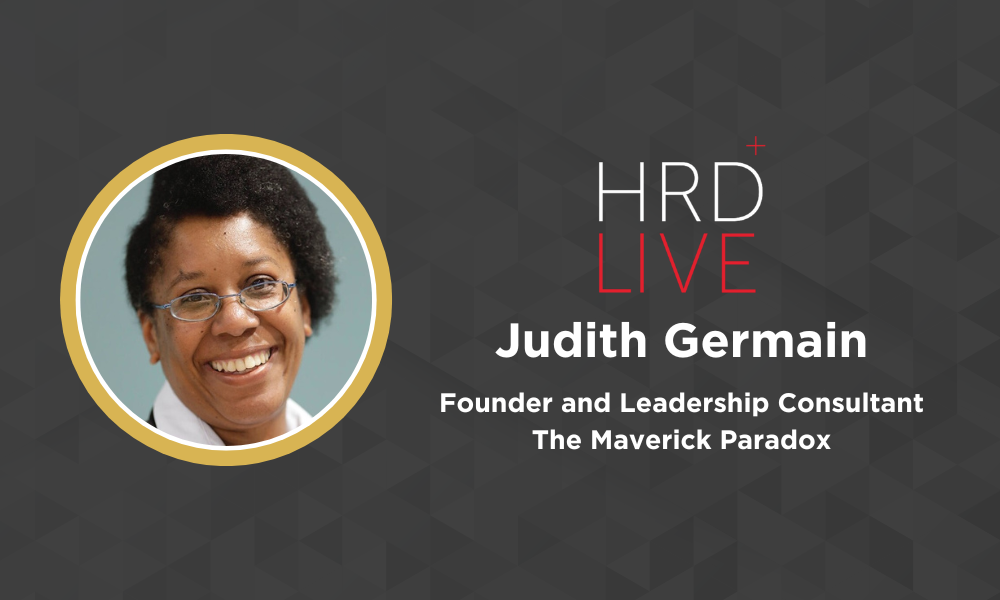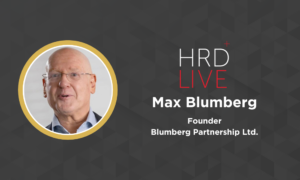Increasing HR’s influence in the workplace: Do people leaders “lack business acumen”?
- 3 Min Read
Despite progress in increasing HR’s strategic impact, many people leaders are struggling to build HR’s influence in the workplace. What skills, capabilities, and practices are missing?
- Author: Benjamin Broomfield
- Date published: Oct 11, 2023
- Categories

Podcast: Play in new window | Download Subscribe: RSS
Do HR leaders possess the business acumen they need to successfully influence their organization? Despite progress in recent years and the introduction of business-centric operating models, 63% of C-Suite leaders still view HR’s role as administrative. Only 39% of HR leaders admit they believe employees are knowledgeable about what HR does. And amid business-mandated layoffs and budget cuts to areas such as DEI&B, there is no doubt frustration amongst HR leaders who feel they are losing, rather than gaining, influence over business strategy. There is a long way to go to increase HR’s influence in the workplace.
Judith Germain, Fellow of the CIPD, MBA, PgDip., is a leading authority on business and HR leadership, and is the latest guest on the HRD Live Podcast. In this episode, Germain outlines where HR leaders may be going wrong, starting with “a lack of business acumen,” and what steps they may take to remedy this issue of influence.
How can we increase HR’s influence in the workplace?
Reflecting on the struggle for influence she has seen in HR leaders, Germain notes that HR leaders often confuse their priorities. “What I’ve seen in the past is HR trying to implement things that just aren’t the priority for the business right now,” she explains. “Or at least they can’t demonstrate is the priorities business right now.”
HR leaders must take a different approach, learning from effective leadership in other departments. “Always start with, where are you going?” begins Germain. “Why do you want to go there as a business? And then show how you’re aligned to it.”
“Be known as someone who can solve problems, come up with innovative solutions, and be solution-orientated,” she explains. “Because that’s how senior leaders think. They solve problems. They look at the solutions. The HR business partner or HR director needs to be the same.”
Across the course of the episode, Germain provides a variety of skills, capabilities, and practices that people leaders must consider to increase HR’s influence. These include:
- The four pillars of influential leadership: Capability, decisiveness, power, impact
- Steps to develop relationship-building capabilities across the business
- Methods for objection handling and change management to best lead with influence
Timestamps
00:09 – Introduction
00:44 – What do you think some HR leaders are currently getting wrong that limits the influence of HR within their organization?
02:00 – What skills do HR leaders need to develop to increase their impact, and how can they develop these skillsets?
05:02 – Can you share some steps for relationship-building with other business leaders? What departments should HR seek to learn from and why?
06:35 – How can HR leaders monitor their own development and progress in this area?
07:54 – What methods for objection handling or change management are best suited to helping HR leaders act with influence?
09:38 – How would these shifts continue to change perceptions of HR as a strategic partner, rather than an administrative executor?
11:51 – Why is it that some leaders are very impactful but lack influence?
13:06 – Why do people of color especially Black women struggle to have the impact and influence they deserve?
16:03 – What steps can HR leaders take to make sure this shift continues into the long term?
Judith Germain Chartered Fellow of the CIPD, MBA, PgDip, is the Leading Authority on Maverick Leadership and has been defining Mavericks as willfully independent people since 2005. She empowers business owners, leaders, the C-Suite, and organizations to thrive in complex, constantly changing environments. She is a consultant, mentor, trainer, and speaker.









